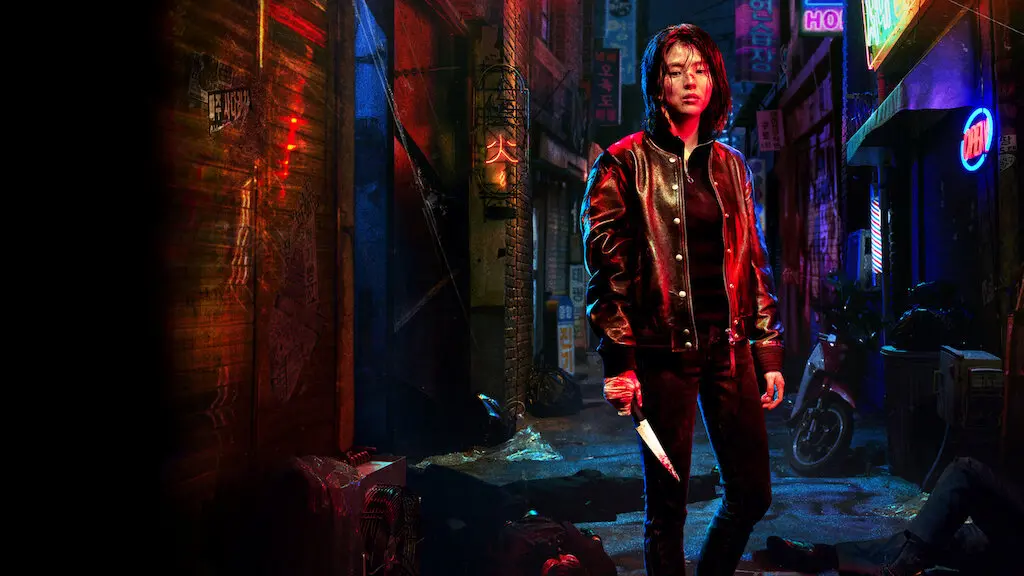Summary
Action-packed and instantly engaging, My Name is a solid revenge thriller grounded by its compelling protagonist.
This review of My Name is spoiler-free.
The unprecedented success of Squid Game on Netflix has exposed how few people have really been paying attention to the diverse array of quality content coming out of South Korea. The irony, of course, is that Netflix is the primary exporter of it. Great new k-dramas have been released on the streaming giant both weekly and in binge batches for several years now, and there’s a sizeable, enthusiastic audience who consume it all hungrily. For those people, Squid Game was nothing new or surprising. But the new eight-part revenge thriller My Name might benefit from the attention all the same. Much like how Alice in Borderland is whipping up its own head of steam thanks to a sudden global interest in Korean television, this bloody action series might well enjoy a vaster audience than usual over the coming weeks.
I hope so, anyway, since My Name is deserving of the attention. Its premise isn’t as immediately arresting as Squid Game’s – it’s about revenge, after all, the most played-out of themes and motivations – but the quality in production and acting are easily on par, such is the generally higher-than-average standard of k-dramas in general. Han So-hee, last seen in Nevertheless, also streaming on Netflix, plays Joon Jiwoo, a young woman determined to avenge the death of her gangster father with the help of his old crime boss associate Mujin and his shadowy organization, which is known as, simply, well… “The Organization”.
After training and planning for years, Jiwoo goes undercover in the police force, suspecting someone within is responsible for the murder of her father, and things only get more complicated from there. Grappling with her need for vengeance, her dual identities, and her relationships with new allies such as fellow cop Pil-Do (Ahn Bo-Hyun) who might well be caught in the crossfire when the law and the underworld clash, Jiwoo is caught in the middle of a complicated struggle.
It’s a complex leading role, this, and a lot of the show rests on Han So-Hee’s ability to pull off every facet of this damaged woman caught between two worlds. The action sequences, though, of which there are plenty, are where she shines the most, delivering brutal beatdowns that are nonetheless grounded and oddly elegant in their choreography. Most of the eight episodes run close to an hour, but they don’t feel that length thanks to not being too dense with plot. Instead, My Name lingers over fights and tense sequences such as police raids and hideout takeovers that really wrings as much tension as possible from the set-pieces. The binge-watch allure is also deeply felt, since most episodes don’t end on cliff-hangers, per se, but almost right in the middle of a scene for the next installment to pick things back up seconds later. The overall effect is of a single continuous narrative that is playing out organically as if the episode breaks are an inconvenience to it. Compare that with, say, Another Life, which would contrive a so-called cliff-hanger just to immediately resolve it at the start of the next episode, and the storytelling here feels much more confident.
And that confidence is what allows My Name to employ all the usual tropes of the revenge drama without feeling tedious or old hat. It’s nothing new, but it’s an old thing executed very well, with a generous helping of gore and violence for good measure. It feels very much like a show for adults, which seems an obvious point, but is worth bringing up given how frequently k-dramas do odd – by Western standards – things with tone and form. There’s very little weirdness here, very few attempts at humor. It’s a serious, straightforward narrative rooted in the perspective of a woman who is consistently on one side or another of brutality.
My Name is unlikely to equal the sheer cultural impact of Squid Game. But it’s a very different show worthy of just as much attention, delivering a handsome, engaging, bloodthirsty spectacle with plenty of style and verve. Tune in for the action sequences, and stay for the layered portrait of a woman in internal and external turmoil. It’s worth the investment.




